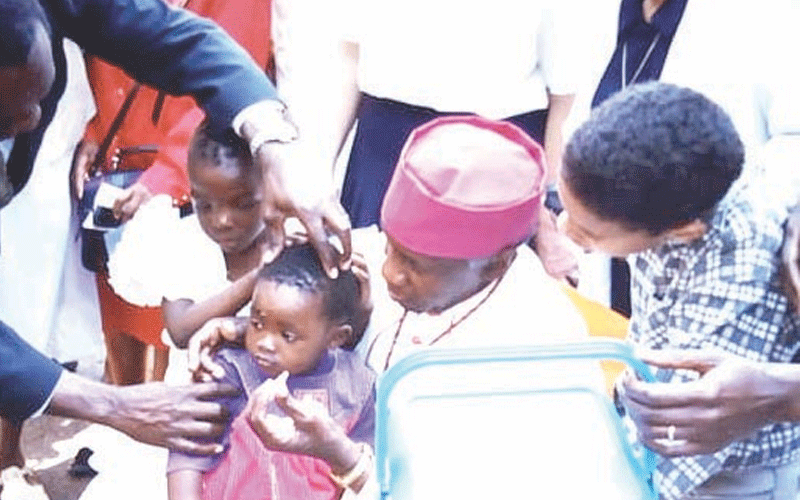How Ndingi lifted veil on Rift Valley ethnic clashes

Emeka-Mayaka Gekara
Facing the threat of losing power following the reintroduction of multipartism in 1991, President Moi’s government was accused of instigating clashes in the Rift Valley with the aim of evicting communities perceived to be supporting the Opposition.
Though the official line was that the violence was about land, the political motive could barely be disguised.
But few dared raise their voice about the clashes.
Human Rights Watch said President Moi had confidently predicted in 1991 that the introduction of multiparty politics would result in ethnic violence.
The clashes were driven by calls for Majimbo (federalism) in the early 1990s by Rift Valley and Coast region politicians.
The politicians said the Rift Valley was a Kalenjin/Maasai territory and that other ethnic groups living in the area should not express differing political views.
Members of the Kikuyu community, who were perceived to be pro-Opposition suffered the brunt of the clashes.
According to the Kenya National Commission on Human Rights, from 1991 to 1996, more than 15,000 people died and almost 300,000 were displaced in the Rift Valley, Nyanza and Western provinces.
Amidst the killings a lone voice emerged from the Nakuru Catholic Diocese. Ndingi Mwana a’Nzeki, the bishop, publicly blamed the Kanu government for the clashes.
The soft spoken but firm and fearless bishop pricked the conscience of the nation, thrusting him onto the national stage.
He didn’t just speak against the clashes. He gave refuge to victims of the violence from Olenguruoni, Kuresoi, Kamwaura and Molo at various institutions in Nakuru.
Ndingi, who died in Nairobi yesterday at the age of 89, would also emerge as an ardent defender of multiparty democracy, human rights, rule of law and a fierce opponent of the mlolongo (queue) voting system designed to lock out Moi critics in the 1988 elections.
“The role of the church is to speak the truth and call for justice for the weak in a spirit service.
Priests should have the courage of faith to speak the truth and defend the poor,” Ndingi said in a past media interview.
So courageous was Ndingi that in 1993, he smuggled Green Belt Movement leader Wangari Maathai into Nakuru at the height of the crackdown on human rights activists. 
In his biography, A Voice Unstilled: Archbishop Ndingi Mwana ‘a Nzeki, the clergyman revealed that he enlisted the services of another controversial priest, Father Ndikaru wa Teresia, who drove Wangari to Nakuru.
Wangari, who won the Nobel Peace Prize in 2004, was disguised as sick Somali woman in the back of a jalopy that Ndikaru drove.
The activist was expected to speak about the injustices meted on families displaced from their homes in the Rift Valley clashes.
Having learnt about the meeting, the government made every effort to block Wangari from travelling to Nakuru.
However, the two passed through heavily manned roadblocks unnoticed arriving in Nakuru where she was hosted at Ndingi’s house.
She made her way to the meeting venue the next day, alongside Ndingi and several foreign embassy representatives.
Police scuttled the meeting but Ndingi writes in the biography that “the publicity the event gained was enough to arouse the sensibilities of the nation as to what was going on in the Rift Valley.”
The priest, who would later become Archbishop of Nairobi, was a firm believer in ecumenism.
“One enduring image is of Bishop Mwana ‘a Nzeki preaching in All Saints’ Cathedral at the invitation of his Anglican friend, Dr David Gitari, Archbishop of the Anglican Church of Kenya,” writes Father Lawrence Njoroge, who worked under him in Nairobi.
Last year, Ndingi celebrated 50 years since his ordination as bishop by Pope Paul VI in Uganda during the pontiff’s visit to Africa.
Records show that no Catholic bishop has celebrated their episcopal golden jubilee in Kenya. This was a first, a record for the Church in the country.






